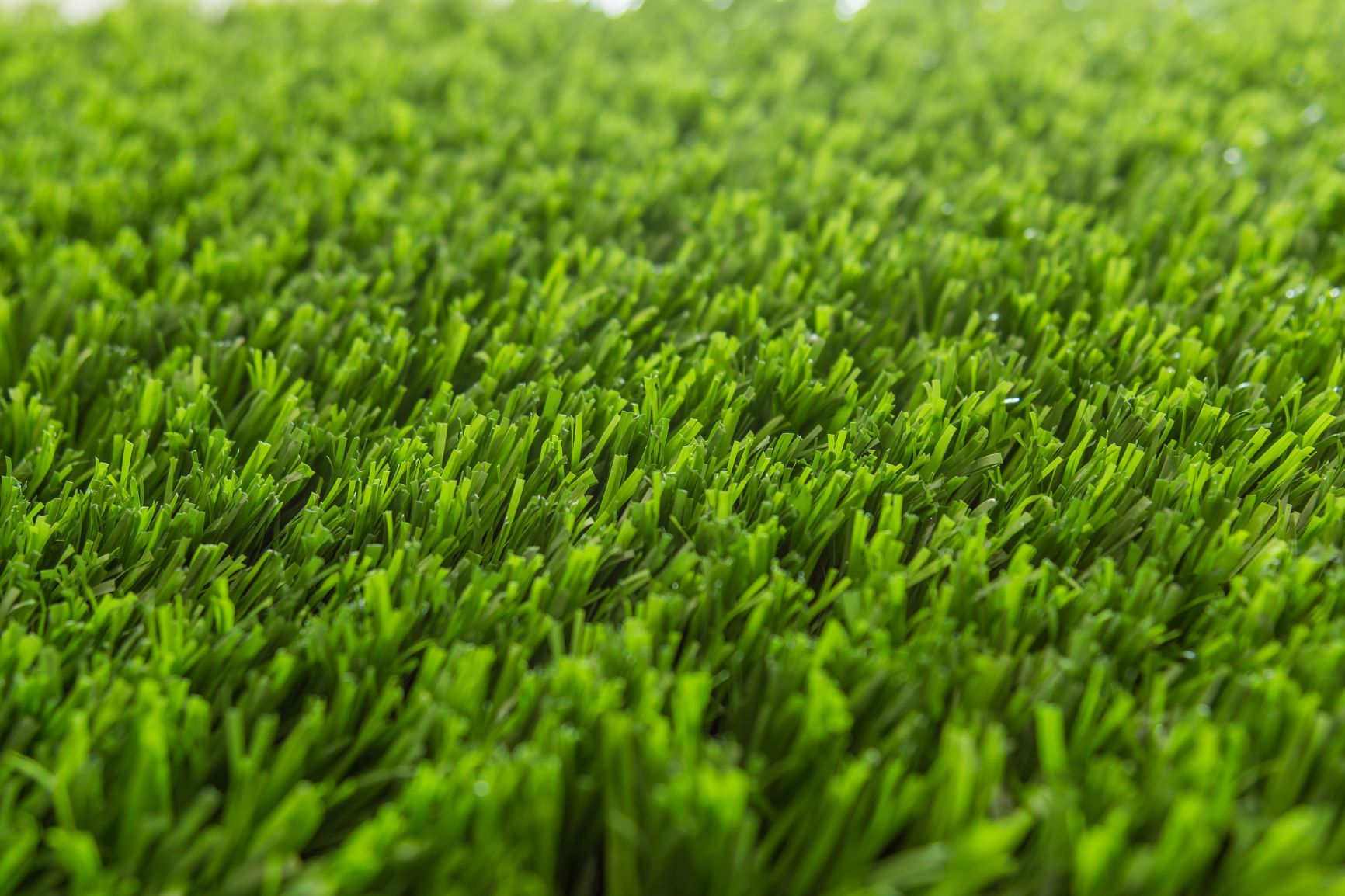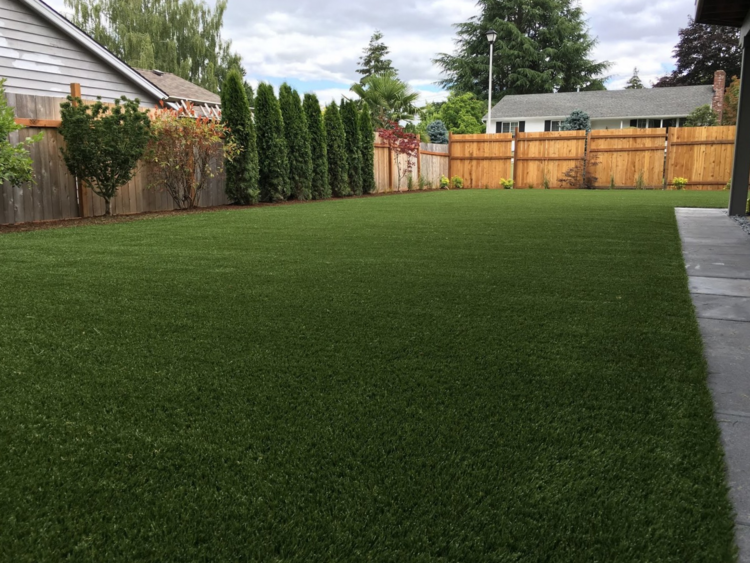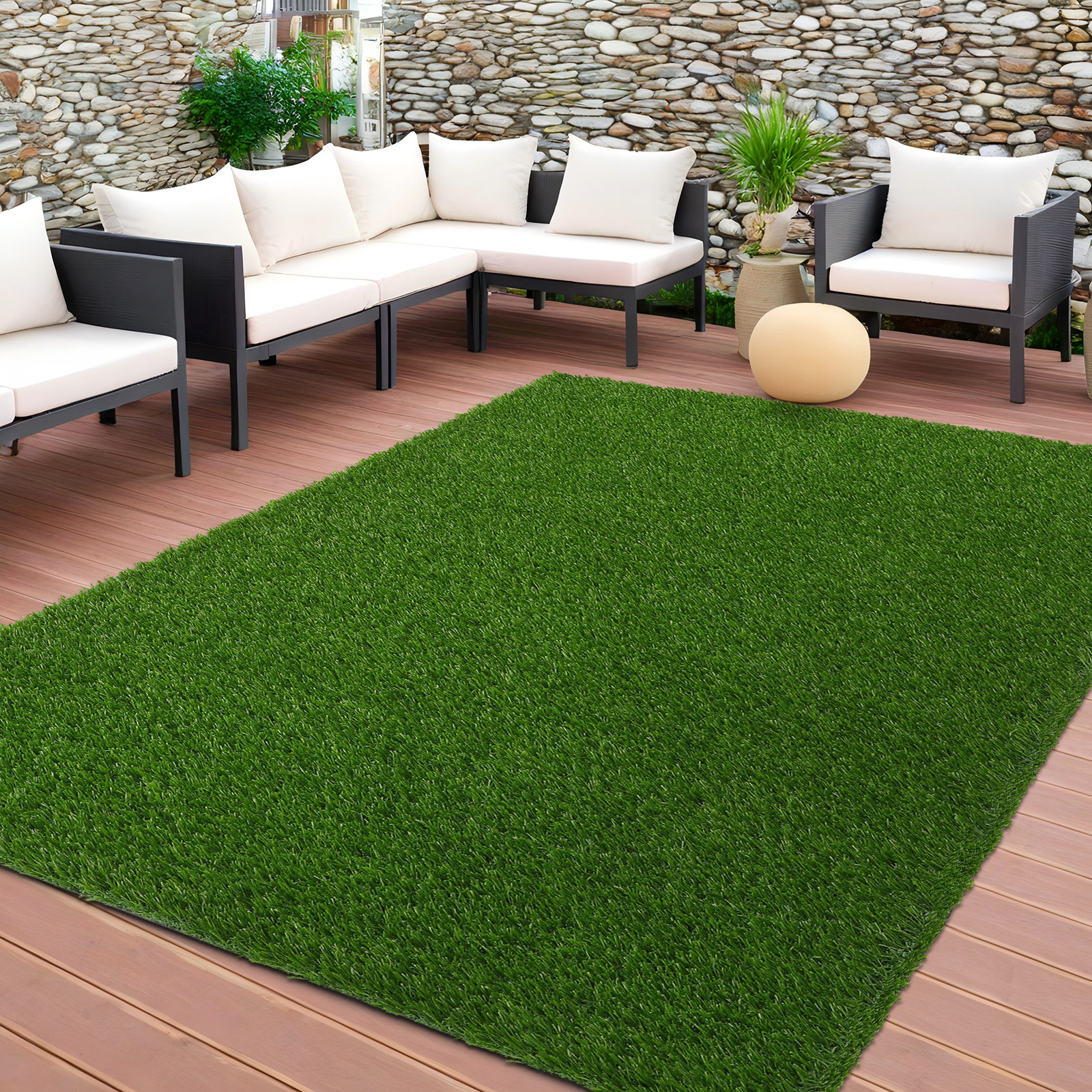Long-Lasting Arizona Artificial Turf for Residential and Business Applications
Long-Lasting Arizona Artificial Turf for Residential and Business Applications
Blog Article
Explore the Environmental Advantages of Opting for Synthetic Grass Solutions
The fostering of synthetic grass remedies presents a compelling possibility to attend to pressing ecological challenges. By considerably reducing water use and lessening the application of dangerous chemicals, these choices not just advertise sustainable landscape design however additionally protect neighborhood communities. The reduced carbon impact associated with lowered upkeep activities adds to an extra lasting approach to land administration. Nonetheless, the implications of these benefits expand past mere preservation efforts, questioning about their lasting influence on environment conservation and total ecological equilibrium. Checking out these measurements reveals a complicated interplay worth taking into consideration.
Water Conservation Advantages
One of the most considerable advantages of artificial lawn is its ability to conserve water. In comparison, man-made grass does not require watering, substantially decreasing the overall need for water resources.
By removing the requirement for normal watering, fabricated turf adds to sustainable landscape methods and aids alleviate the environmental effect of too much water consumption. The conservation of water prolongs to the decrease of runoff, which can lead to dirt disintegration and waterway pollution.
Furthermore, the installment of synthetic grass enables municipalities and house owners to allocate water sources more efficiently, focusing on crucial uses such as alcohol consumption water and farming. The shift in the direction of fabricated lawn not only advertises responsible water usage however additionally straightens with broader ecological objectives focused on preserving natural deposits.
As neighborhoods significantly focus on sustainability, the water preservation advantages of man-made lawn offer a compelling instance for its fostering in business and property landscape design tasks.
Lowered Chemical Use
The transition to artificial turf considerably reduces the reliance on chemical treatments frequently made use of in all-natural yard upkeep. Conventional turf management usually includes the application of herbicides, pesticides, and fertilizers to advertise development and control insects. These chemicals can present risks to human wellness, local wildlife, and the setting, adding to dirt and water contamination.
On the other hand, synthetic turf removes the requirement for these unsafe materials. When installed, it calls for very little maintenance, mostly containing normal cleaning and occasional infill replenishment. This reduction in chemical usage not just benefits the prompt setting however also adds to wider ecological stability. By decreasing the release of artificial compounds into the ecological community, synthetic grass advertises healthier soil and water supply.
Additionally, the lack of chemical drainage connected with artificial grass installments helps secure local rivers from air pollution, supporting water life and maintaining biodiversity. Phoenix turf companies. As communities progressively focus on sustainable methods, choosing synthetic grass provides a viable option that straightens with ecological conservation objectives. Via this change, building owners can take pleasure in lavish green spaces without jeopardizing environmental wellness, leading the way for a much more sustainable future
Lower Carbon Impact

In addition, the installation of synthetic turf can cause substantial water conservation. Natural lawns need substantial quantities of water for watering, which not only includes to the carbon impact related to water extraction and treatment however also strains regional water resources. On the other hand, synthetic grass needs very little upkeep, needing no watering, therefore considerably lowering water use and its linked power prices.
In addition, the durability of synthetic grass adds to its reduced carbon influence. With a lifespan of up hop over to here to 15 years or even more, the demand for constant substitutes is lessened, causing much less waste and lower energy consumption in manufacturing and dealing with conventional turf alternatives. Overall, synthetic grass provides a sustainable choice for eco mindful landscaping.
Environment Conservation
Environment preservation is a vital consideration in the debate over landscape design options, especially when comparing synthetic grass to natural lawn. Natural turf yards often call for considerable upkeep, including the use of pesticides, herbicides, and plant foods, which can detrimentally impact neighborhood ecological communities. These chemicals can leach into the soil and rivers, harming indigenous flora and animals and interfering with regional environments.
Artificial turf eliminates the requirement for hazardous chemicals, thus securing close-by wild animals and maintaining the integrity of surrounding communities. The setup of synthetic lawn can lead to the conversion of previous yard locations right into even more biodiverse landscapes, such as pollinator yards or indigenous plant locations, which can sustain regional wildlife.
Inevitably, the transition to synthetic turf not only preserves water and lowers maintenance efforts but additionally cultivates an extra unified partnership in between human tasks and the natural environment, promoting habitat preservation while doing so.
Long-Term Sustainability
Lasting sustainability is an essential factor in evaluating the benefits of artificial grass over traditional grass lawns. Among one of the most substantial advantages of synthetic turf is its resilience; it can last up to 15-20 years with very little maintenance, whereas all-natural lawn requires constant reseeding and replacement. This longevity reduces the demand for continuous sources, such as water, fertilizers, and pesticides, which are important for keeping a healthy yard lawn.
Furthermore, fabricated grass contributes to a decrease in carbon emissions connected with yard care devices. Traditional yards frequently require gas-powered lawn mowers, leaners, and blowers, all of which add to air pollution. Phoenix turf companies. In comparison, synthetic grass removes the need for such tools, promoting a cleaner setting
Furthermore, the production of synthetic grass increasingly uses recycled products, boosting its sustainability account. As makers take on environment-friendly techniques, the ecological footprint of synthetic grass proceeds to decrease.

Conclusion
The adoption of man-made grass solutions offers significant environmental benefits, including significant water conservation, reduced dependence on unsafe chemicals, and a lower carbon impact. Man-made turf aids in maintaining natural environments by minimizing land disruption and advertising long-term sustainability via the usage of sturdy materials. Collectively, these aspects more helpful hints underscore the capacity of synthetic grass to add positively to ecological wellness and supply a practical choice to traditional landscaping methods in an increasingly resource-conscious globe.
In special info comparison, synthetic grass does not require watering, significantly decreasing the total demand for water resources. By lessening the launch of artificial substances into the environment, fabricated lawn promotes much healthier soil and water systems.
Moreover, the installment of fabricated lawn can result in substantial water conservation. In contrast, artificial turf needs minimal maintenance, requiring no watering, thus significantly decreasing water usage and its connected energy expenses.

Report this page